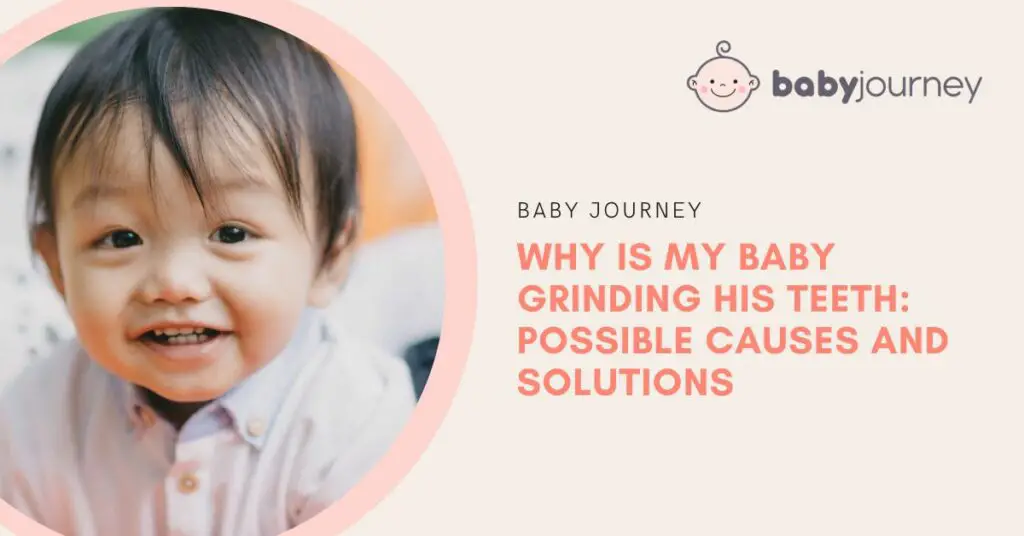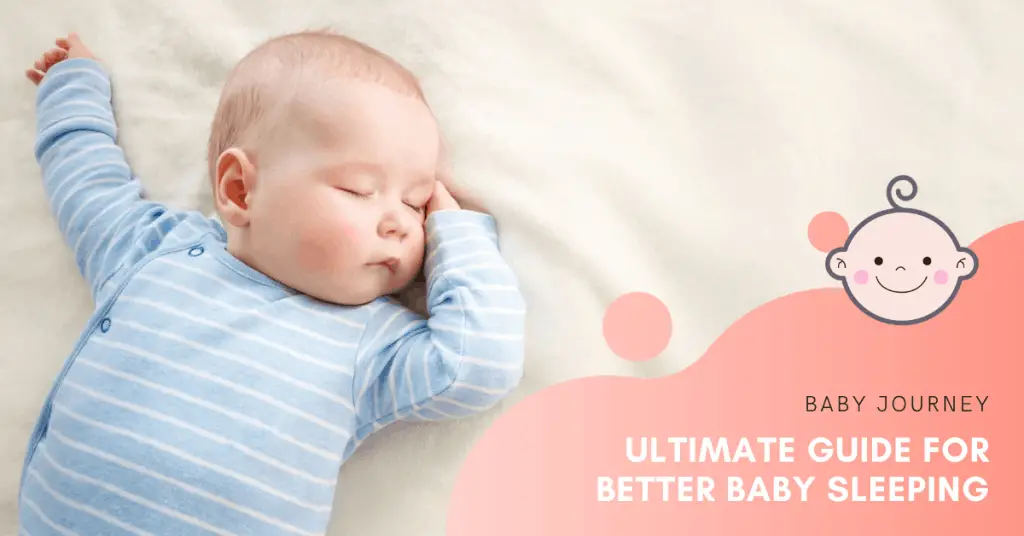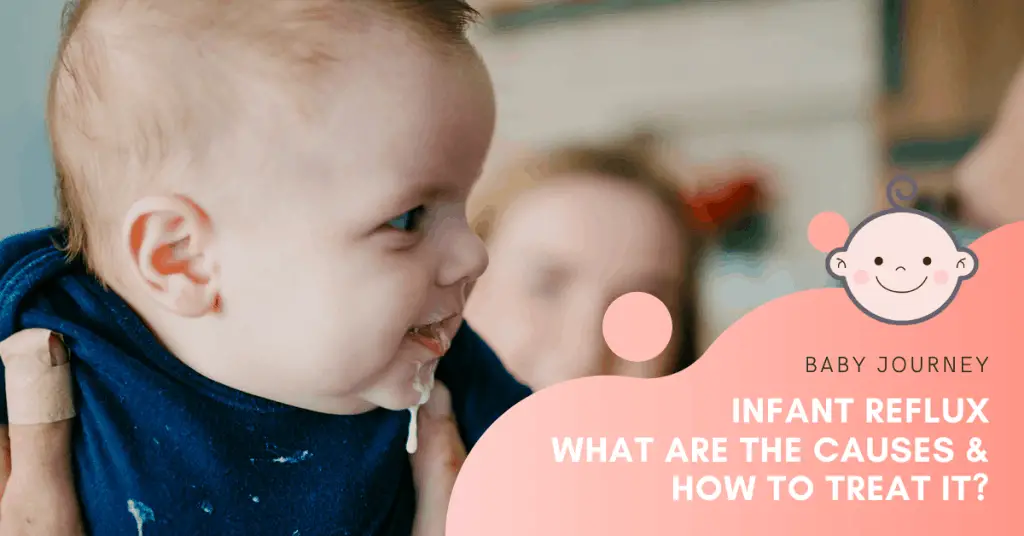Why is my baby grinding his teeth? Teeth grinding, or bruxism, is a common condition that affects babies, children, and adults. If you’re a parent, you may have noticed your baby grinding teeth, which can be concerning. While it’s usually not a cause for alarm, it’s important to understand why your baby is doing it and what you can do to help.
Why do babies grind their teeth? Although the exact cause of teeth grinding in babies is not known, experts suspect that tension or anxiety, pain from ear aches or teething, and malocclusion, which is a dental term for misaligned teeth, could be the possible reasons. In some cases, tooth grinding can be a sign of an underlying medical condition, such as sleep apnea or cerebral palsy. Why is my baby grinding her teeth? If you’re concerned about your child’s teeth grinding, it’s important to talk to your pediatrician to rule out any underlying medical issues.
What is Bruxism?
Bruxism is a condition where an individual involuntarily grinds, gnashes, or clenches their teeth. It can occur while they are awake or asleep. Bruxism is not uncommon in babies and young children, and it is usually not a cause for concern. However, in some cases, it can lead to dental problems and discomfort.
Why does my baby grind her teeth while awake? Experts are not entirely sure what causes bruxism, but they believe that it may be due to a combination of factors. These factors include tension or anxiety, pain from teething or earaches, malocclusion (when the teeth do not line up correctly), and certain medical conditions or medications.
In babies, bruxism is often related to teething. Why does my baby grind his teeth? As new baby teeth emerge, babies may grind their teeth to relieve the discomfort. However, bruxism can also be a sign of other issues, such as cerebral palsy, hyperactivity, or autism. If parents notice that their baby is grinding teeth excessively, they should consult a pediatrician or dentist.
Tooth grinding in babies usually stops on its own as they grow older and their permanent teeth come in. However, if the bruxism persists or is causing pain or dental problems, parents should seek medical advice. Dentists may recommend a mouthguard to protect the teeth or other treatments depending on the severity of the condition.
In summary, bruxism is a condition where an individual involuntarily grinds, gnashes, or clenches their teeth. It can be caused by a combination of factors, including tension or anxiety, pain, malocclusion, and certain medical conditions or medications. In babies, bruxism is often related to teething, and it usually stops on its own. However, if it persists or causes dental problems, medical advice should be sought.
Causes of Bruxism in Babies
Bruxism, or teeth grinding, in babies is a common occurrence that usually does not require any treatment. Why does my baby grind her teeth? It is important to understand the possible causes of teeth grinding in babies to ensure that it is not a symptom of an underlying medical condition. The following are some of the most common causes of bruxism in babies:
Teething
Teething is a common cause of tooth grinding in babies. Why does baby grind teeth? When a baby’s teeth start to emerge through the gums, they may experience discomfort, pain, and itching. Teeth grinding can be a way for babies to relieve the discomfort associated with teething. Parents can help alleviate the pain by giving their baby teething toys or massaging their gums.
Stress and Anxiety
Stress and anxiety can also cause teeth grinding in babies. Babies may experience stress and anxiety due to changes in their routine, such as starting daycare or having a new caregiver. They may also experience stress and anxiety due to loud noises, bright lights, or other sensory stimuli. Parents can help reduce stress and anxiety by creating a calm and soothing environment for their baby.
Habit Formation
Why is my baby grinding his teeth? Teeth grinding can also become a habit for babies. If a baby grinds their teeth once and experiences relief from discomfort or pain, they may continue to do so as a habit. This habit can be difficult to break, but parents can try to redirect their baby’s attention to other activities, such as playing with toys or listening to music.
Medical Conditions
In rare cases, tooth grinding in babies can be a symptom of an underlying medical condition. Medical conditions associated with bruxism in babies include cerebral palsy, hyperactivity, and autism. Certain medications can also cause teeth grinding in babies. If a baby’s teeth grinding is accompanied by other symptoms, such as difficulty sleeping, jaw pain, or tooth sensitivity, parents should consult with their pediatrician.
In conclusion, teeth grinding in babies is usually a harmless occurrence that does not require any treatment. However, it is important to understand the possible causes of bruxism in babies to ensure that it is not a symptom of an underlying medical condition. Parents can help alleviate the discomfort associated with teething and reduce stress and anxiety by creating a calm and soothing environment for their baby. If a baby teeth grinding is accompanied by other symptoms, parents should consult with their pediatrician.
Symptoms of Bruxism in Babies
Bruxism, or teeth grinding, is a common condition among babies. Although it is not a cause for alarm in most cases, it can be a sign of an underlying issue. Here are some symptoms to look out for:
- Audible grinding or clenching of teeth: One of the most obvious signs of bruxism is a grinding or clenching sound coming from your baby’s mouth. This can be heard during the day or at night.
- Pain: Bruxism can cause pain in the jaw, head, or ears. Your baby may also complain of a headache or earache.
- Tooth wear: Over time, bruxism can cause tooth wear, which can lead to sensitivity and other dental problems. Your child’s teeth may also become flattened, chipped, or loose.
- Sleep disruption: Bruxism can disrupt your baby’s sleep, leading to daytime sleepiness or irritability.
- Behavioral problems: In some cases, bruxism can be a sign of stress or anxiety. Your baby may become more irritable, aggressive, or withdrawn.
If you notice any of these symptoms in your baby, it is important to talk to your pediatric dentist. They can help determine the cause of the bruxism and recommend appropriate treatment options. In some cases, bruxism may resolve on its own without any intervention. However, if it is caused by an underlying issue, such as an ear infection or misaligned teeth, treatment may be necessary to prevent further complications.
When to See a Doctor
If your baby is grinding their teeth, it’s important to keep an eye on the behavior and take action if necessary. While occasional teeth grinding is normal, frequent or severe grinding could be a sign of an underlying issue.
If you notice any of the following signs, it’s important to consult with your baby’s healthcare provider:
- Your baby’s teeth grinding is loud and frequent
- Your baby’s teeth grinding is causing them pain or discomfort
- Your baby’s teeth grinding is causing damage to their teeth
- Your baby’s teeth grinding is interfering with their sleep or daily activities
In some cases, your baby’s dentist or pediatrician may recommend a mouthguard to protect their teeth from damage caused by grinding. They may also suggest other treatments or therapies to address any underlying issues that may be causing the behavior.
If your baby’s healthcare provider determines that the teeth grinding is related to a medical condition, they may recommend additional testing or treatment to address the issue.
Overall, it’s important to stay vigilant and take action if you notice any concerning signs or symptoms related to your baby’s teeth grinding. By working closely with your baby’s healthcare provider, you can help ensure that they receive the care and support they need to maintain optimal oral health and overall well-being.
Treatment Options for Bruxism in Babies
If your baby is experiencing bruxism, there are several treatment options available that can help alleviate symptoms and prevent further damage to their teeth. Here are some of the most common treatment options for bruxism in babies:
Mouth Guards
Mouth guards are one of the most effective ways to treat bruxism in babies. By creating a physical obstruction between the upper and lower teeth, the mouth guards function to prevent the grinding of teeth against each other. Mouth guards are typically made from soft, flexible materials that are comfortable for babies to wear, and they can be custom-fitted to ensure a perfect fit.
Medications
In some cases, medications may be recommended to help treat bruxism in babies. Acetaminophen and ibuprofen can be used to alleviate pain and discomfort associated with teething or ear infections, which can sometimes cause bruxism. However, it’s important to talk to your doctor before giving your baby any medication.
Behavioral Therapy
Behavioral therapy can also be effective in treating bruxism in babies. This may involve teaching your baby relaxation techniques, such as deep breathing or meditation, to help them relax and reduce stress. Additionally, you can try to establish a calming bedtime routine to help your baby sleep more soundly and reduce the likelihood of sleep-related bruxism.
It’s important to note that in most cases, bruxism in babies is not a serious condition and will often resolve on its own over time. However, if your baby’s bruxism is causing pain or discomfort, or if it is causing damage to their teeth, it’s important to talk to your doctor about treatment options. With the right treatment, you can help your baby feel more comfortable and prevent further damage to their teeth.
Conclusion
Teeth grinding, also known as bruxism, is a common behavior among infants and young children. It typically resolves on its own and does not require special treatment. While the exact cause of bruxism is unknown, experts believe it can be due to various factors such as teething, jaw misalignment, stress, or sensory issues.
Parents should not be overly concerned if they hear their baby grinding teeth. However, if the behavior is excessive, it may be a good idea to consult a pediatrician or dentist to rule out any underlying medical conditions.
To help prevent baby or toddler grinding teeth, parents can try the following tips:
- Ensure that the baby is getting enough sleep and is not overtired or stressed.
- Offer a teething toy or cold washcloth to soothe sore gums.
- Avoid giving the baby hard or crunchy foods before bedtime.
- Encourage relaxation techniques such as a warm bath or gentle massage before bedtime.
In conclusion, while tooth grinding may be concerning, it is usually harmless and resolves on its own. By following the above tips, parents can help prevent excessive teeth grinding and ensure their baby’s overall dental health.



